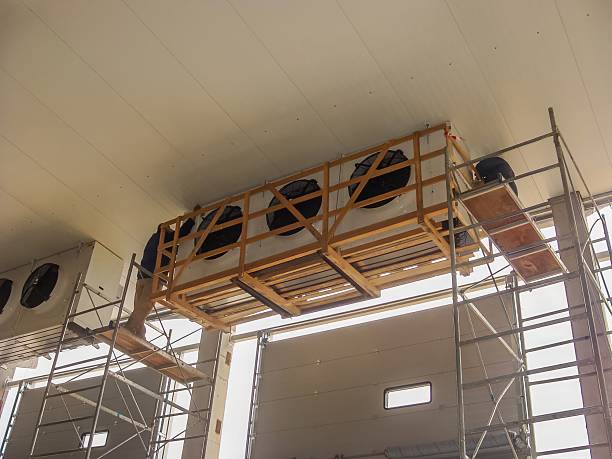Sinus infections are often associated with symptoms such as congestion, headaches, and facial pressure, but one lesser-known symptom that many people experience is neck pain. The connection between sinus pain and neck tension might seem surprising at first, but understanding how these two issues are interrelated can provide you with a clearer path toward effective relief.
What is Sinus Pain and How Does it Relate to Neck Pain?
Sinus pain typically occurs due to inflammation in the sinus cavities caused by infection, allergies, or other irritants. The sinuses are located around the eyes, nose, forehead, and behind the cheeks, and when these air-filled spaces become inflamed, pressure builds up, leading to pain and discomfort.
But how does this tie into neck pain?
The sinuses are not isolated from the rest of the body. The muscles, nerves, and structures of the neck and upper back can often be affected by the inflammation in the sinus cavities. When the sinuses are congested, the body’s response can lead to neck tension and stiffness, often due to muscle tightness or the body’s attempts to relieve sinus pressure.
Key factors contributing to this connection include:
- Muscle Strain: Sinus pressure can lead to muscle tension, especially in the neck and shoulders, as these muscles work harder to compensate for the discomfort caused by sinus congestion.
- Nerve Involvement: The trigeminal nerve, which plays a key role in facial sensations, is closely connected to the neck. When sinus cavities become inflamed, the nerve can trigger referred pain in the neck and upper back.
- Postural Changes: People with sinus infections often adopt poor posture to alleviate sinus pressure, which can, in turn, contribute to neck strain.
How to Identify Sinus Pain in the Neck
Identifying sinus pain that affects the neck can sometimes be tricky because the symptoms often overlap with other types of neck pain. However, some distinct signs indicate that sinus issues are the source of your discomfort:
- Pain and Pressure: If you feel pressure or fullness in the sinus areas of your face (around the nose, eyes, and forehead) along with stiffness or pain in the neck, it’s a strong indicator of sinus-related neck pain.
- Pain with Movement: Moving your head or neck, especially when turning or tilting, may exacerbate the pain. This happens because the muscles around the neck are tight or inflamed as a result of sinus congestion.
- Nasal Congestion: If you experience nasal stuffiness alongside neck pain, this further suggests the pain might be related to sinus issues.
- Chronic Neck Tension: When sinus congestion is chronic, the associated neck pain may linger or intensify, creating a pattern of ongoing discomfort.
Holistic Treatments for Sinus Pain and Neck Tension
While traditional treatments like medications and antibiotics are commonly used to manage sinus infections, holistic approaches offer effective solutions to treat both sinus pain in neck and neck tension together. Here are some natural remedies and lifestyle changes that can help alleviate both types of discomfort:
1. Steam Inhalation
Steam inhalation is a powerful method for relieving sinus congestion. The warm, moist air helps open blocked sinus passages and reduces inflammation. When paired with essential oils like eucalyptus or peppermint, steam inhalation can provide even greater relief.
How to Use:
- Boil a pot of water and pour it into a bowl.
- Drape a towel over your head and the bowl to trap the steam.
- Inhale the steam for 10–15 minutes, taking deep breaths.
2. Neck Stretches and Exercises
Gentle neck stretches can provide immediate relief for the tension that builds up in the neck and shoulders due to sinus pain. Tension in the neck muscles can exacerbate sinus pressure, so keeping these muscles flexible can help ease discomfort.
- Neck tilts: Slowly tilt your head toward each shoulder, holding the position for 10-15 seconds.
- Neck rotations: Gently rotate your head in circular motions, both clockwise and counterclockwise.
3. Hydration
Staying hydrated is essential when dealing with sinus pain and neck tension. Drinking plenty of water helps thin mucus, making it easier for the body to clear congestion. This, in turn, reduces the pressure on your sinuses and the associated neck pain.
4. Warm Compresses
A warm compress applied to the neck and sinus areas can reduce pain and promote circulation. For sinus pain, a warm towel placed over the face can soothe irritated sinuses, while applying heat to the neck muscles can relieve stiffness and tension.
Conclusion
Sinus pain in the neck is a condition that can disrupt daily life, but understanding the connection between sinus infections and neck tension is the first step toward finding relief. Holistic treatments such as steam inhalation, neck stretches, hydration, acupressure, and chiropractic care can help alleviate both sinus and neck discomfort. If symptoms persist or worsen, don’t hesitate to seek medical advice to ensure you receive the best care for your condition.
FAQs
1. Can sinus pain cause neck stiffness?
Yes, sinus pain can cause neck stiffness due to muscle tension and inflammation. When the sinuses are congested, muscles in the neck may tighten as a reaction to the discomfort.
2. How long does neck pain from sinus issues last?
The duration of neck pain caused by sinus issues can vary, but it often lasts as long as the sinus infection persists. Once the sinus congestion resolves, neck pain typically improves as well.
3. Can chiropractic care help with sinus and neck pain?
Yes, chiropractic care can be effective for relieving both sinus and neck pain. Adjustments can help reduce neck tension and improve overall sinus function.
4. Are there any home remedies for sinus-related neck pain?
Home remedies like steam inhalation, warm compresses, neck stretches, and acupressure can provide significant relief for sinus-related neck pain.





